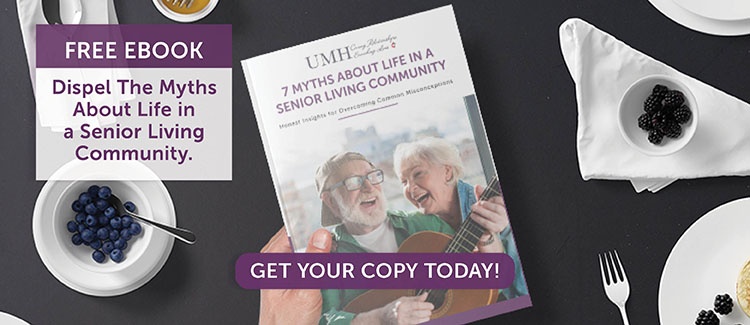 Many people have the wrong impression of what it means to grow old. The older years of an individual’s life can actually be a very active time for many people, with new experiences and new connections. Many older adults may feel like they are no longer useful, productive, or valuable in their later years of life, but “old age” can be full of meaning and purpose for those who choose to explore the possibilities.
Many people have the wrong impression of what it means to grow old. The older years of an individual’s life can actually be a very active time for many people, with new experiences and new connections. Many older adults may feel like they are no longer useful, productive, or valuable in their later years of life, but “old age” can be full of meaning and purpose for those who choose to explore the possibilities.
There are many misconceptions about aging that caregivers and seniors should be aware of. As a caregiver, become sensitive to these misconceptions and be sure to reinforce the potential of your loved one’s life, regardless of their age and limitations.
Misconception 1 – Brain Power Disappears with Age
While many older adults will struggle with mental conditions, like dementia, that decrease their short-term or long-term memory, the truth is that verbal/math abilities and abstract reasoning can actually increase with age. The key to strengthening these abilities is engaging the brain and exercising mental faculties to combat degenerative conditions. Physical exercise and social interaction are also important factors that can contribute to keeping the brain active and sharp.
Misconception 2 – Aging Robs You of Your Happiness
Though many people associate old age with depression, loneliness, and misery, getting older does not mean your loved one will lose their joy for life. In fact, recent happiness studies indicate that people are happiest at retirement age. Today, with the wealth of opportunities available for older adults, this can still ring true for adults who have been retired for many years. Getting older can mean having time to enjoy hobbies and interests that bring true happiness, rather than having all of one's time engaged in obligations.

Misconception 3 – Older Adults Are Lonely
In today’s world, there is not only a multitude of social activities available for older adults, but also a variety of senior living options. Volunteer opportunities, club memberships, senior centers, and time with family and friends can provide human interactions and social connections that can support an older adult through the aging process and any challenges that come along with it. Living in an assisted living community can also provide a great sense of family and belonging to residents.
After spending many years living alone, losing friends or family, and feeling socially isolated in the later years of life, the lifestyle in an assisted living community can be a great solution for preventing loneliness and depression. Assisted living communities provide vital opportunities for conversation, camaraderie, and companionship, allowing many adults to enjoy their senior years as the most social years they have had in a long time.
Misconception 4 – Older Adults Have Multiple Health Conditions
While our bodies do wear down with age, growing old does not necessarily mean losing all of your independence and visiting the hospital every week. While some older adults may develop health conditions that require close monitoring and intervention, many health conditions can be avoided by maintaining a healthy lifestyle. Taking care of your health as you age and staying active through proper exercise will help prevent falls, improve balance and circulation, and help increase overall independence.
Misconception 5 – Aging Limits the Ability to Learn New Skills
Learning new skills as an older adult is a different process than learning in your younger years, but that doesn’t mean older adults should avoid trying new things. In fact, learning and processing new information or taking up a new hobby can help keep the mind sharp and provide something interesting to enjoy throughout the day. You can, and should, learn new skills as you age.
Many people fear getting older because of these misconceptions, but the aging process should not be considered something to be afraid of, but rather, something to explore. If you stay active and engaged, your later years of life can be some of the best in your life!
Key Takeaways:
- Getting older does not mean you will lose all mental acuity and independence.
- Older adults find that they have more time to enjoy life and therefore are often the happiest they have ever been in their later years.
- Active living can help ward off loneliness and multiple health conditions.
- Older adults can and should learn new things or take up new hobbies to find purpose and meaning in life.


